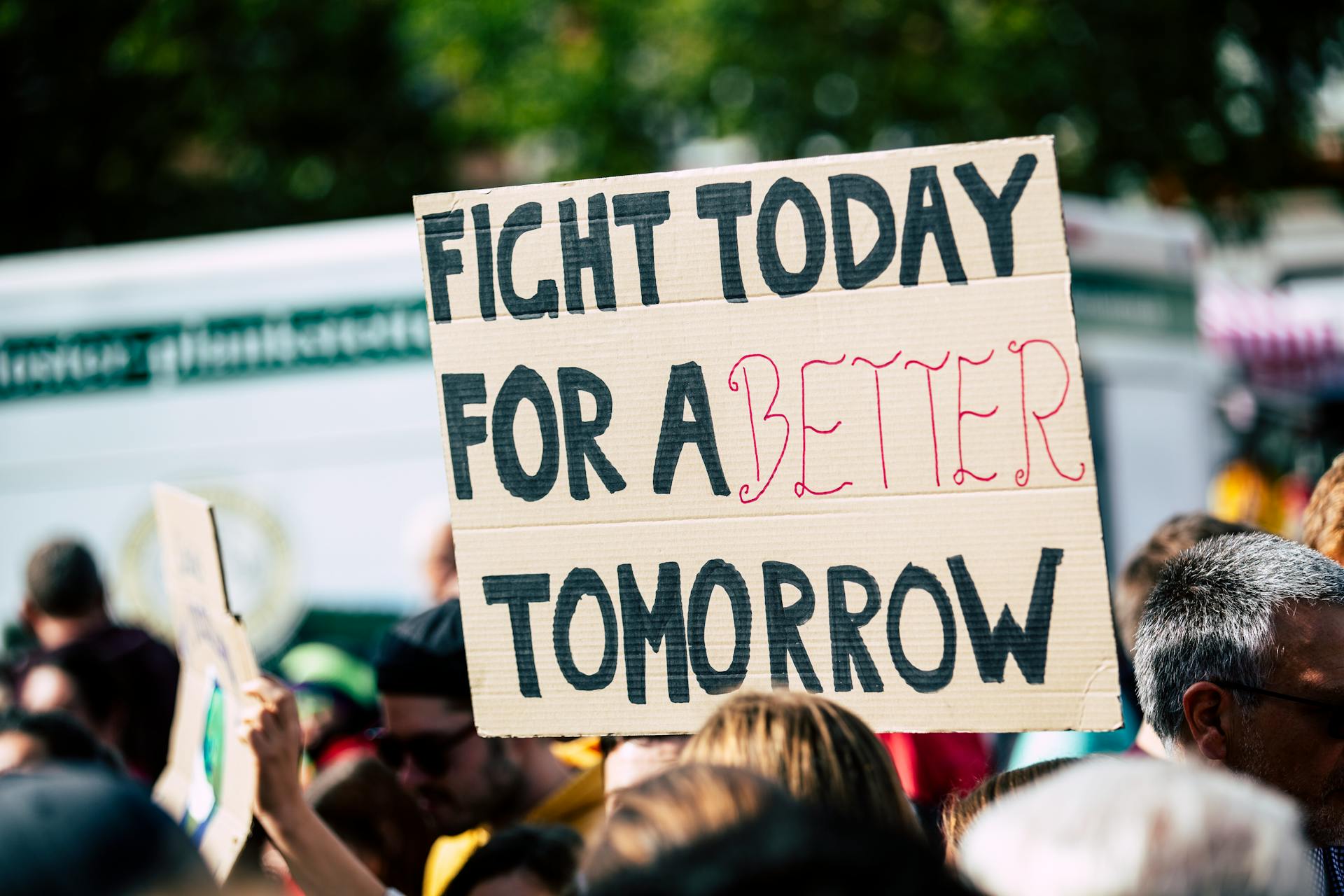Introduction
In today’s world, where political discourse often resembles a battleground of conflicting ideologies and polarizing rhetoric, the need for critical thinking has never been more paramount.
It is through the lens of rational analysis and objective evaluation that we can navigate the intricate web of policies, debates, and arguments that shape our societies.
This blog post aims to delve into the intricate relationship between critical thinking and political discourse, providing insights and strategies to help us become more discerning consumers and contributors to the political landscape.
Understanding Critical Thinking
Critical thinking is a multifaceted cognitive process that involves questioning assumptions, evaluating evidence, identifying logical fallacies, and drawing well-reasoned conclusions. It is a vital skill that empowers individuals to navigate the complexities of modern life, including the realm of politics and policymaking.
At its core, critical thinking encourages us to approach information with an open mind, to scrutinize it from multiple angles, and to resist the temptation of accepting claims at face value. It involves breaking down arguments into their constituent parts, examining their underlying premises, and assessing their validity and relevance.
The Importance of Critical Thinking in Political Discourse
Political discourse is often characterized by polarizing rhetoric, emotional appeals, and ideological biases. In this environment, critical thinking serves as a powerful tool to cut through the noise and separate fact from fiction.
By applying critical thinking principles, we can:
- Identify logical fallacies and manipulative tactics employed by politicians and pundits.
- Evaluate the credibility and motivations behind various policy proposals and political arguments.
- Recognize and challenge biases, both our own and those of others, that may distort our understanding of issues.
- Foster constructive dialogue and bridge ideological divides by focusing on evidence-based reasoning.
Analyzing Policies: A Step-by-Step Approach
When it comes to evaluating political policies, critical thinking provides a structured framework for thorough analysis. Here’s a step-by-step approach:
a. Define the problem: Clearly articulate the issue or challenge that the policy aims to address.
b. Understand the context: Examine the historical, social, economic, and political factors that contribute to the problem.
c. Examine the proposed solution: Analyze the policy’s objectives, strategies, and anticipated outcomes.
d. Gather evidence: Seek out reliable and diverse sources of information, including expert opinions, research studies, and factual data.
e. Identify assumptions and biases: Question the underlying assumptions and potential biases that may influence the policy’s formation or implementation.
f. Consider alternative perspectives: Explore different viewpoints and potential drawbacks or unintended consequences.
g. Evaluate the feasibility: Assess the policy’s practicality, resource requirements, and potential obstacles to implementation.
h. Draw a reasoned conclusion: Based on the evidence and analysis, determine whether the policy represents a sound and effective approach to the problem.
Dissecting Political Debates: Separating Facts from Rhetoric
Political debates often involve a clash of ideologies, emotional appeals, and rhetorical tactics. To navigate these debates effectively, critical thinking skills are essential.
Here are some strategies to separate facts from rhetoric:
a. Identify logical fallacies: Recognize common logical fallacies, such as ad hominem attacks, straw man arguments, and false dichotomies.
b. Fact-check claims: Verify the accuracy of statements and statistics by consulting reputable and authoritative sources.
c. Recognize emotional appeals: Be wary of arguments that rely heavily on fear, anger, or other emotional triggers rather than reason and evidence.
d. Examine sources and motivations: Consider the credibility and potential biases of the individuals or organizations presenting the arguments.
e. Seek out diverse perspectives: Expose yourself to a range of viewpoints and perspectives, rather than relying on a single source or echo chamber.
f. Encourage reasoned discourse: Foster an environment of respectful dialogue, where arguments are evaluated based on their merits, not on personal attacks or ideological affiliations.
Cultivating a Culture of Critical Thinking
Promoting critical thinking in political discourse is not just an individual endeavor; it requires a collective effort to create an environment that values reason, evidence, and open-mindedness.
Here are some strategies to cultivate a culture of critical thinking:
a. Education: Incorporate critical thinking skills into educational curricula from an early age, equipping students with the tools to analyze information objectively.
b. Media literacy: Encourage the public to critically evaluate media sources, recognize biases, and distinguish between credible journalism and propaganda.
c. Public discourse: Foster platforms for respectful and reasoned debate, where diverse perspectives can be shared and challenged constructively.
d. Role models: Highlight and celebrate public figures, politicians, and thought leaders who exemplify critical thinking and evidence-based decision-making.
e. Civic engagement: Encourage active participation in the political process, where citizens can engage in informed discussions and hold their representatives accountable.
TL;DR
Critical thinking is essential for navigating the complex and often polarizing world of political discourse.
By applying principles of rational analysis, evaluating evidence objectively, and recognizing logical fallacies and biases, we can become more discerning consumers and contributors to the political landscape.
Fostering a culture of critical thinking requires a collective effort, involving education, media literacy, public discourse, and civic engagement.
Q&A
Q: Why is critical thinking important in political discourse?
A: Critical thinking helps us separate facts from rhetoric, identify logical fallacies, and evaluate the credibility and motivations behind various policy proposals and political arguments. It fosters constructive dialogue and evidence-based decision-making.
Q: How can we analyze policies through a critical thinking lens?
A: By clearly defining the problem, understanding the context, examining the proposed solution, gathering evidence, identifying assumptions and biases, considering alternative perspectives, evaluating feasibility, and drawing reasoned conclusions based on the analysis.
Q: What strategies can be used to dissect political debates and separate facts from rhetoric?
A: Identifying logical fallacies, fact-checking claims, recognizing emotional appeals, examining sources and motivations, seeking out diverse perspectives, and encouraging reasoned discourse are effective strategies.
Q: How can we cultivate a culture of critical thinking in political discourse?
A: By incorporating critical thinking skills into education, promoting media literacy, fostering platforms for respectful debate, highlighting role models who exemplify critical thinking, and encouraging active civic engagement.
Q: Why is it important to consider diverse perspectives when analyzing political issues?
A: Considering diverse perspectives helps us challenge our own biases, gain a more comprehensive understanding of complex issues, and arrive at more well-rounded and informed conclusions.
Quiz: Critical Thinking in Politics
1. Which of the following is NOT a characteristic of critical thinking?
a) Questioning assumptions
b) Evaluating evidence objectively
c) Accepting claims at face value
d) Drawing well-reasoned conclusions
2. When analyzing a political policy, what is the first step in the critical thinking process?
a) Gather evidence
b) Identify biases
c) Define the problem
d) Consider alternative perspectives
3. Which of the following is a logical fallacy that should be identified and avoided in political discourse?
a) Ad hominem attack
b) Citing credible sources
c) Considering multiple viewpoints
d) Drawing conclusions based on evidence
4. Which strategy can help cultivate a culture of critical thinking in political discourse?
a) Encouraging echo chambers
b) Promoting media literacy
c) Relying solely on emotional appeals
d) Discouraging public discourse
5. True or False: Considering diverse perspectives is important when analyzing political issues because it helps challenge our own biases and gain a more comprehensive understanding.
Answers:
1. c) Accepting claims at face value
2. c) Define the problem
3. a) Ad hominem attack
4. b) Promoting media literacy
5. True
Scoring:
5 correct answers: Excellent! Your critical thinking skills are strong, and you have a solid understanding of how to analyze policies and debates objectively.
3-4 correct answers: Good effort! You’re on the right track but could benefit from further developing your critical thinking abilities.
1-2 correct answers: There’s room for improvement. Consider revisiting the concepts and strategies discussed in this blog post to enhance your critical thinking skills.
0 correct answers: It’s time to sharpen your critical thinking skills. Refer back to the content and practice applying the principles to improve your ability to analyze political discourse objectively.





